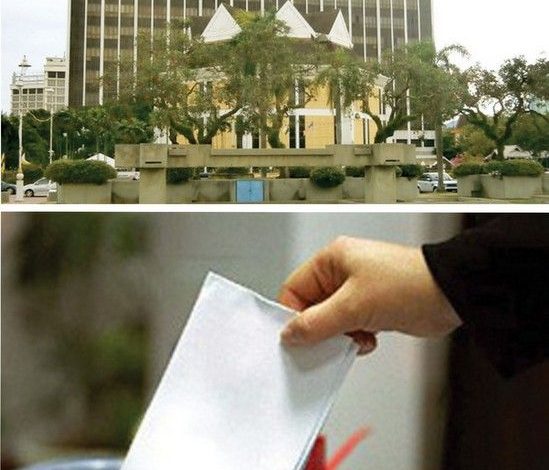Are We Ready For Local Government Elections?


By Fathol Zaman Bukhari
The advancement in information and communication technology has its good and bad sides. The one most significant advantage it has over communication modes of yesteryears is speed. Today we get to read news in real time. And the media channels employed can be via television, radio, landlines and mobile phones or, more appropriately, smartphones.
Smartness is in no way associated with these gizmos other than their ability to respond to the touch of our fingers. I have yet to find one old hand who is never ill at ease when using one. My wife’s ‘smartie’ keeps hanging whenever she switches it on and she has to go through the motion of unloading and loading the battery to get it operating.
Although mine is less troublesome I have yet to fully comprehend its many features and functions compared to the simpler ones. The application WhatsApp is among the latest that is beginning to have an impact on my generation. And being a member of a WhatsApp group, regardless of its size and affiliation, is something smartphone users relish. It’s the feeling of exclusivity and of importance that keeps one from leaving a particular group.
I must admit since being roped in by Dr Richard Ng of Ipoh City Watch into his ‘ICW Whatchaaa’ group, I have been exposed to many animated discussions and debates on matters which we have come to consider mundane and, perhaps, irrelevant.
Early last week the subject of local government elections was seriously discussed by group members following the appointment of Tony Khoo as one of the 24 Ipoh City Councillors. Tony was mistaken for a MCA appointee but was later identified as the replacement for the late Dato’ Francis Lee, President of REDHA (Real Estate and Housing Developers Association) Perak. Tony takes up one of the four slots reserved for members of non-governmental organisations in place since the General Election of 2008.
As to whether Ipohites were getting a raw deal was hotly discussed with many disapproving of Tony’s appointment, as he did not represent Ipoh ratepayers, per se. If that is the premise, so are the remaining 23 councillors, none of whom represent the rakyat, as almost all are members of the ruling coalition. Efforts at giving seats to representatives from civil society are being hijacked by the omnipotent political agenda of Barisan Nasional.
Opposition-ruled Penang tried to bring back local government elections but was stonewalled by the Local Government Act 1976. Section 15 of the Act “abolishes the rights of the state legislatures to hold local government elections within the states.” This was further reinforced after the Federal Court ruling on August 14, 2014 stating that the “DAP-led Penang Government did not have the jurisdiction to conduct local government elections.”
Court of Appeal President Tan Sri Md Raus Sharif who chaired the federal court’s five-member panel said the “state government could not unilaterally exempt the application of Section 15 of the Local Government Act 1976 to the whole of Penang.”
That put paid to the Opposition’s attempts at reintroducing local government elections, a third-tier election within the democratic process. We ought to remember that this third-tier election was the basis of our country’s transformation from a British colony to an independent nation with its own Constitution. It was held on July 27, 1955 to elect members of the federal legislative assembly, which before this were appointed by the British High Commissioner to Malaya.
Some argued that holding local government elections is not the answer to the problems of incompetency and inefficiency associated with local governments. The reason, they said, is an ineffective and inept civil service prone at adopting a top-bottom approach in managing its affairs. For as long as these bureaucrats think and act in such a manner, problems will persist.
Although the local government elections have received much publicity following the Federal Court ruling, the reluctance of Malay-based parties, namely Umno and Pas, in supporting the motion is disturbing. Their fear, I believe, is real. Should local government elections be reintroduced, the possibility of urban areas falling to non-Malays is great. This explains the lingering doubts and fears in Umno and Pas and their resistance, however subtle it may be.
So you will have a situation where rural areas are controlled by Malays while urban areas by non-Malays, thus widening the racial divide. But this is only a theory.


